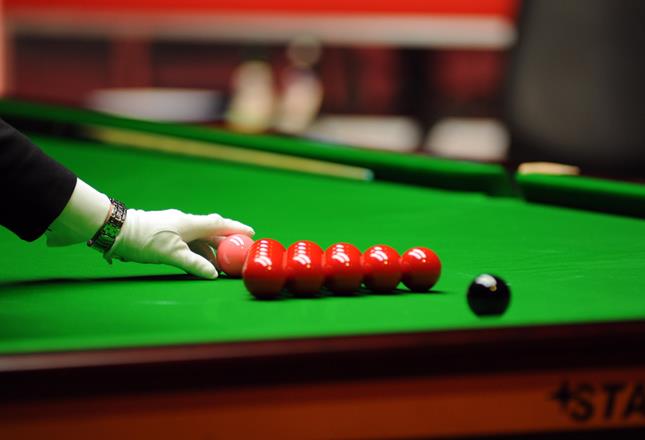
Tension penned in by the cushions, eyes fixated to brightly coloured balls and players among sports’ best-dressed –the nation’s most-loved cue sports have plenty to offer.
The Alliance got in touch with Matt Huart, Head of Communications at the World Professional Billiards and Snooker Association, to help those hoping to pick up a cue get started.
So let’s get the ball rolling…
How would you describe Billiards and Snooker?
Billiards and Snooker are cue sports with millions of participants and fans around the globe. Both sports are played on a billiard table and players use a wooden stick known as a cue to strike the balls on the table, where various scoring methods have been devised over the years.
Snooker has global appeal due to its ‘one on one’ gladiatorial nature. It is a non-contact sport but requires the strongest of minds and an iron will to battle tactically to a finish. It is one of the few sports in the world which can be competed by men, women, children and people with disabilities on an equal basis.
How can someone get involved?
The first step for anyone looking to get involved in snooker would be to find their local snooker club. In England, this can be found by using the Club Finder tool created by the English Partnership for Snooker and Billiards, which includes 56 affiliated clubs which meet recognised minimum standards.
Players looking to improve their game can also find a coach using the WPBSA Coach Finder which includes the details of hundreds of qualified coaches worldwide.
Why should people give it a go?
Snooker is an inclusive and versatile sport for all that can be practised individually, played recreationally with friends, or contested in a competitive environment.
Easy to play, but difficult to master, snooker offers a fun and rewarding challenge for people of all levels of ability and the satisfaction as the object ball hits the back of the pocket is one that never becomes old!
Is there a disability option?
Yes – World Disability Billiards and Snooker (WDBS) is an organisation which was established with the support of Activity Alliance in 2015 with the aim of giving people with a wide-range of disabilities (physical, intellectual and sensory) the opportunity to play snooker.
WDBS events are held across the UK and beyond and are divided into different classification groups to enable anyone to be competitive regardless of their disability. Each event has an open day on its first day with free coaching and table time, encouraging even complete beginners to come and have a go.
What advice would you have for anyone looking to take up the sport?
We would advise anybody looking to play snooker to check out their nearest club – either on their own or with a friend – and simply pick up a cue and have a go.
Unlike many sports, snooker is low cost and accessible to all, with equipment provided by most clubs. Snooker facilities can be the hub of a community, giving players opportunities to make new friends and enjoy a wide range of other benefits.
How have you got creative during lockdown?
The WPBSA Group has come up with a series of innovative online challenges including the ‘Blue Ball Shoot Out’ which has so far raised over £13,000 for public health services across the globe. This has been celebrated with a ‘singalong’ video featuring several personalities from the snooker community.
Additional challenges have included our ‘ironing board challenge’ which has seen players from all backgrounds, whether professional, women’s, disability or senior players, come together to have fun for a good cause during the suspension of regular competition.
What are the physical and mental health benefits of your sport?
From picking up a cue in childhood to playing into retirement, snooker is a sport that can bring together all forms of people which can help with isolation, improving family interaction, enhancing mental health and reducing sedentary behaviour.
In 2017, a ground-breaking research study titled ‘Exploring aspects of cognitive development and mental health awareness as part of a health promotional goal in Snooker’, was published by Rohit Sagoo (PhD Candidate, MRes, PGCE, RN Child).
The paper emphasised the positive benefits of playing snooker, in particular for those with mental health or social problems and others who have difficulty with concentration.
This afternoon, the Chancellor delivered her Budget speech to Parliament, outlining decisions on tax and spending.
Read moreAhead of the Chancellor’s Budget statement on 26 November, we take a look a look at the key areas to be aware of and the work the Alliance has been doing lobbying on behalf of members.
Read moreGovernment has today formally launched a consultation on reforming the role of statutory consultees in the planning system. The consultation runs for eight weeks, closing on 13 January 2026.
Read moreJoining the Sport and Recreation Alliance is pretty simple, but worthwhile!
Register now